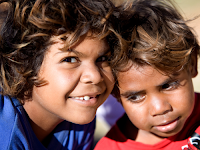‘You can’t teach young
students the ABC Theory of Emotional Disturbance and it should only be used by
a trained psychologist in the counselling setting.’ Albert Ellis railed against
this kind of misinformation put forth to preserve the status of the
psychologist as ‘expert.’ Ellis of course wanted his ABC Theory of Emotional
Disturbance to be accessible to all, especially to teachers and students. Far
better that young children learn why they feel and act as they do and to
develop insights and skills preventatively and educatively in the school
setting.
Jonas Salk who created
the polio vaccine hypothesised that if we could ‘psychologically immunise’
students they would be less prone to mental health issues and would probably be
physically better off too.
Bat Fink, the cartoon
character said to his enemies ‘your bullets cannot harm me, my wings are like
shields of steel?’ He would wrap his wings around himself deflecting any harmful
bullets from hitting him, thwarting those who would have him undone.
Teaching students how
to deflect psychological harm as part of daily curricula activities would be a useful
thing. Rational Emotive Behaviour Education does just that by using some basic
but essential counselling tools and ideas. To those who may think ‘I am not a
psychologist and I have enough to teach’ consider the following and reap the
benefits.
1.
Kids
actions are determined largely by their constructed views (beliefs) about
themselves, others and the world (as indeed our own are).
2.
These
beliefs can be largely helpful (rational) or unhelpful (irrational).
3.
Strength
of emotion is also linked to these constructed views – ‘I want something and I
must have it and I didn’t get it.’= anger. ‘I want something and I prefer to have
it but I can wait.’ = disappointment.
4.
Thinking,
feeling and behaving are connected – ‘Nothing is good or bad but thinking makes
it so!’ Hamlet.
Strategies
1.
Teach how
broccoli is only good or bad depending on what you think about it (replace
broccoli with ‘maths’ ‘chores’ etc)
2.
Teach the
Emotional Thermometer – words for varying strength of feeling.
3.
Teach the Catastrophe
Scale – how to put the severity of problems into reasonable perspective (is a
sore toe as bad as your favourite pet gerbil being eaten by a cat)
4.
Provide
behaviour specific feedback to students not person specific (you did
that well/badly not you are a lazy klutz!)
5.
You can do
dumb but not be dumb, a very important distinction (you ARE NOT what you DO.
You ARE NOT what others THINK of you). You can fail at something but never can
you BE a failure (unless you believe you are – irrational)
Use the idea of Bat
Fink deflecting harmful bullets and encourage students to consider information
and evidence to draw their own conclusions about their self worth and rejecting
(deflecting) errant incoming data. Can a person be bad? No. A person can act
badly which does not cancel out the positive qualities that remain. Failure also doesn’t define a person
nor does rejection i.e. we are worthwhile because we are here! (Albert Ellis –
Unconditional Self-Acceptance).
 |
| Your bullets cannot harm me! |







